Robbie Williams’ chilling confession about darkest period: ‘Fast-track to death’
The former Take That star has shared harrowing details of his darkest period, admitting for the first time how close he came to death.
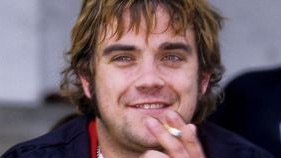
TV
Don't miss out on the headlines from TV. Followed categories will be added to My News.
WARNING: Graphic
Robbie Williams has revealed he went on a six-day bender at the height of his boozing – not sleeping for an astonishing 144 hours.
The British star, fuelled by a cocktail of vodka, cocaine and “anything I could get my hands on”, also threw up “black bile” … but continued his binge.
He now believes he was hours from death following the relentless stint in France in 1996.
In an exclusive interview with The Sun, Robbie, 49, recalled: “I thought I could snort the most, take the most pills, drink the most and I thought that was a superpower at the time.
“I didn’t know that was my fast-track to death. You feel like you’re indestructible, I didn’t feel I was going to die. It’s only subsequently I realise I was close.
“I stayed awake for six days. I was with somebody with deals to the dealers and it was a six-day bender, and it went very quickly.”
The effects of deprivation are well documented, with symptoms including irritability and cognitive rigidity, where individuals can only think about things in one fixed way.
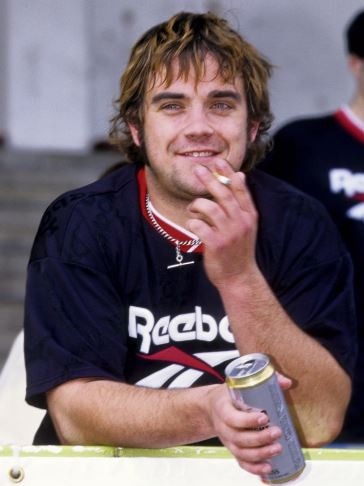
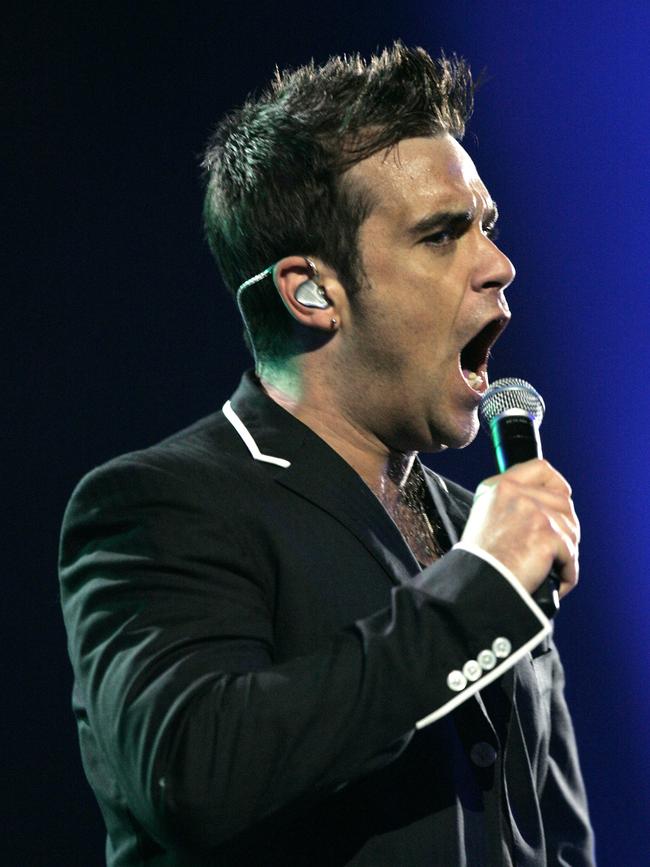
‘I was in disarray most of the time’
Other side-effects include loss of motivation, higher blood pressure, paranoia, memory issues, mood changes, visual problems, hallucinations and difficulties with speech.
Guinness World Records stopped accepting sleep deprivation entries in 1997 due to health concerns, but the global record at that point stood at more than 18 days.
Last night, before the premiere of his new four-part eponymous Netflix documentary, Robbie admitted his former Take That bandmates were aware — and concerned — about his partying.
He quit the band in 1995.
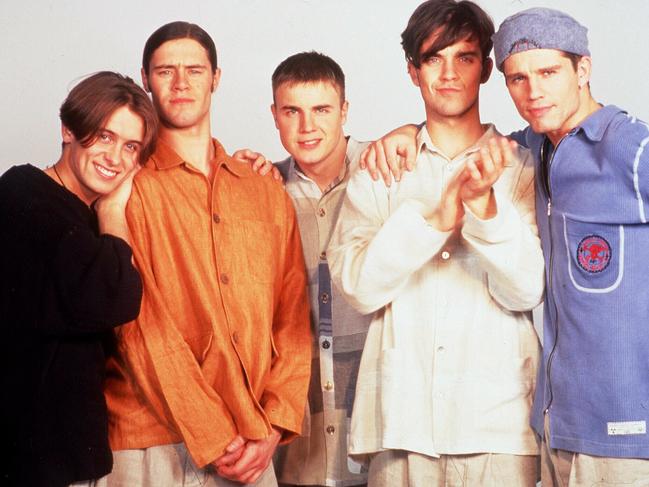
During the docuseries, he admits to drinking a bottle of vodka a day before rehearsals.
He adds: “There was a time with Take That before our first MTV awards in Brussels when I went on, shall we say, a very long celebrity weekend.
“And I just went absolutely mental, taking absolutely anything I could in all quantities, and then before the live show I was spewing my guts out with this black bile. It just filled the bathroom floor.
“A doctor injected me with something, then I went and did the show. It made me scared.
“I did the show and then went back out again and carried on like nothing had happened.
“The next day we flew to London and I was walking around Chelsea Harbour and it hit me, ‘Oh s**t, I’m an alcoholic, I’m an addict’. Because I’d been close to death but had carried on regardless, abasing my better judgment, so by the time it came to the end of Take That I was doing fully-blown alcoholism and desolate times.
“It was also très dramatic, me alone in the Midland Hotel with a bottle of vodka, on my knees, fists to the sky. I was in a state of disarray most of the time.”
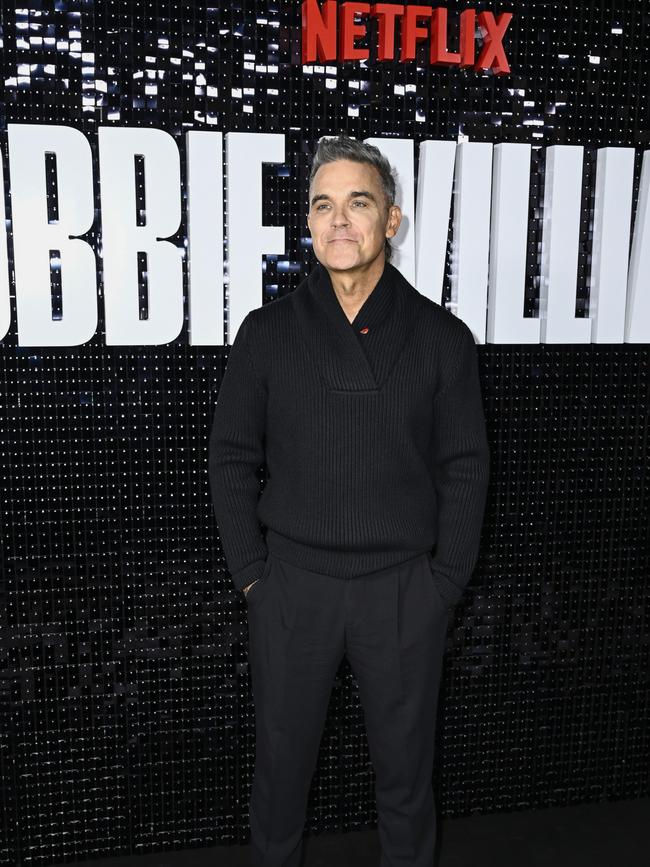
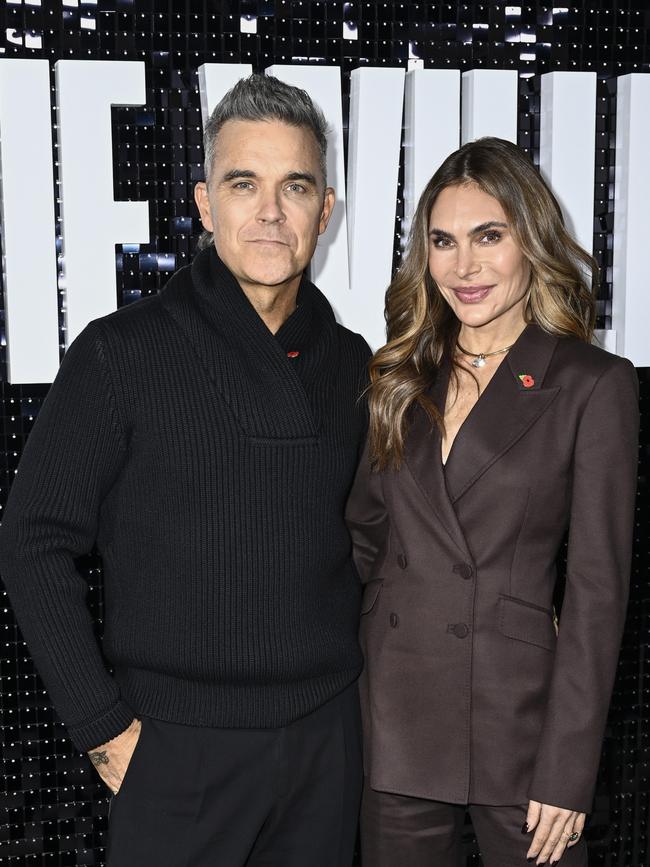
In the documentary, Robbie, who has now been sober for more than 20 years, reflects on an incident which saw him in hospital after falling over in a bathroom and knocking himself out. There were, he now admits, several more similar episodes which he managed to keep out of the press.
Not surprisingly, he is grateful that his hell-raising took place before the advent of smartphones made everybody a paparazzo.
In an especially poignant part of the show, he remembers his mental health being so low — and his partying so out of control — that he didn’t care if he “passed away”.
He says: “There were a few times when I was taken to [the emergency room], and other celebrities passed away doing what I was doing while I was doing it. I did think, ‘Oh, I’m next’, and I didn’t care. It was sad. I had no resistance.”
Today, clean, sober, happily married to beautiful wife Ayda and with four children, his biggest vices are exercise — and art.
He regularly works out in his home gym and has a personal chef whipping up healthy meals filled with his five-a-day.
At 6ft 1in he is also down to a lean, mean fighting weight of 81kgs, around 25kgs lighter than at his most “bloated”.
But his previous disordered eating is made clear in the series, with the revelation that at one time he survived on just one banana a day, around 90 calories.
‘They want the next big thing – and I’m not it’
Before our interview then, I text him to ask if it is fair to suggest he had “anorexia”.
He replies saying it is.
When we speak, he continues: “I looked into eating disorders after you messaged to make sure I got it right. And yes, there’s been an overarching eating disorder that has been with me all my life, it’s a mixture of all the disorders.
“I had ‘bigorexia’, which is thinking you have no muscles and no size, and anorexia. There is a word that’s missing though, and that’s what I am. It was either restrictive or overeating — I’ve never had it right. There is an eating disorder … I’m just not sure which one is my brand.”
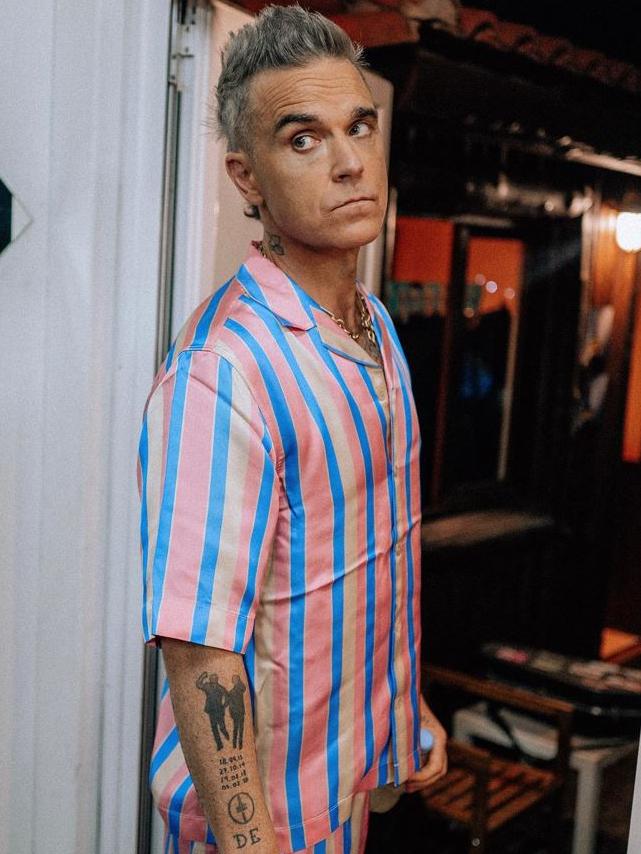
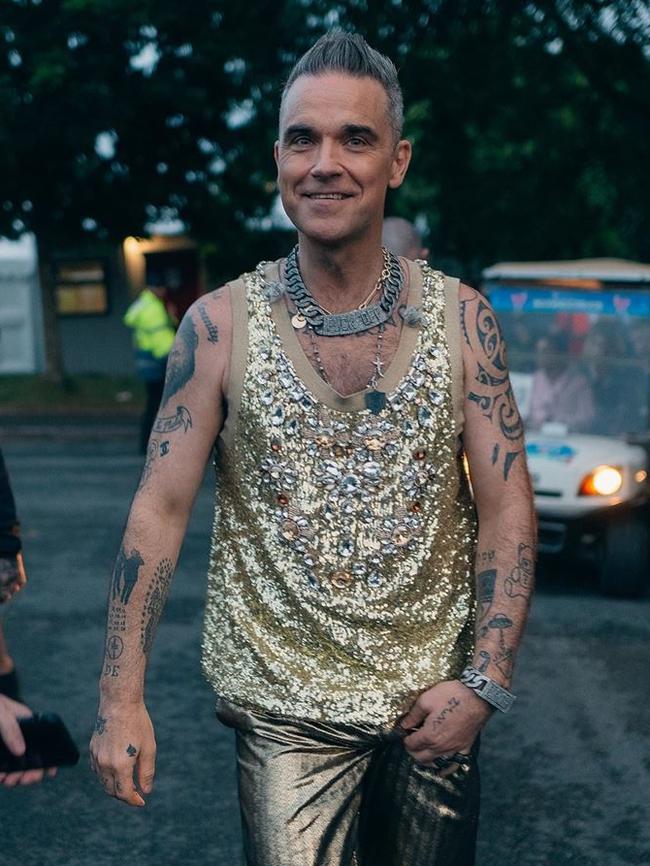
While he has millions of adoring fans across the globe, and a plethora of hit singles, awards and records to his name, Robbie remains fiercely ambitious.
As well as recently exhibiting his art at Sotheby’s in London, next on the agenda is building his own hotel and setting up a university for the arts for all those wanting to work in every aspect of the entertainment industry.
He admits he struggles to get into the charts any more, on account of being nearly 50, but refuses to blame the industry-wide trope of ageism.
He expands: “It’s not ageism that David Beckham isn’t playing for PSG any more.
“Streaming has changed a lot of things, and everyone has their time in pop, it is for young people. They want the next big thing, and I am not it.
“I’m aware that soon enough my oxygen will be taken away that lets you be a Taylor Swift or an Ed Sheeran.
“Madonna had it the longest, and she did it epically, but eventually it goes away from all of us.
“And hopefully I won’t stop being me with my live audiences. Now my wins are what I can leave for my children — my legacy for them will be opportunity.”
Robbie Williams begins streaming on Netflix on Wednesday.
This article originally appeared in The Sun and was reproduced with permission
Originally published as Robbie Williams’ chilling confession about darkest period: ‘Fast-track to death’




